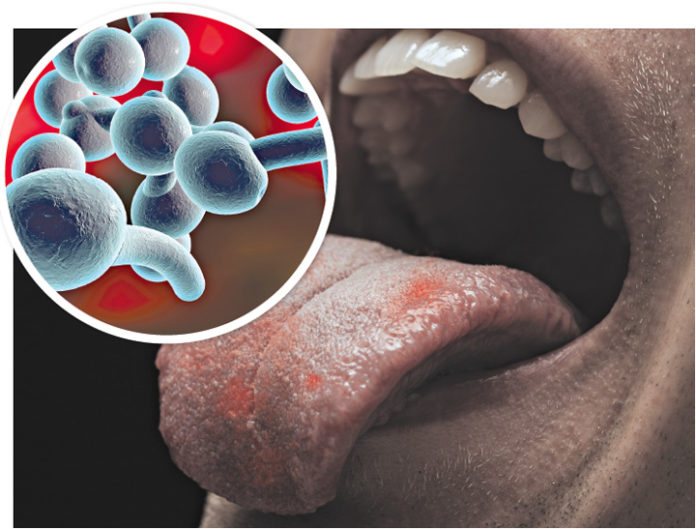Candida infections are more prevalent than many realize, affecting various aspects of health both inside and out. This blog will shed light on the key signs of a Candida infection that often go unnoticed, emphasizing why they deserve attention. While traditional treatments tend to address symptoms, grasping the root causes of Candida overgrowth is essential for effective management and recovery. Let’s explore the unexpected signs of a Candida infection and discuss ways to manage them.
What Causes Candida Infections and How They Impact Your Health
Candida is a type of yeast that normally exists in small amounts in your body, especially in places like your mouth, intestines, and skin. However, when the balance of bacteria and fungi is thrown off—due to reasons like a poor diet, stress, antibiotics, or a weakened immune system—Candida can multiply excessively and lead to infections.
Unlike treatments that only address symptoms temporarily, effectively managing Candida involves understanding and tackling the underlying factors that encourage its growth. The overgrowth can show up with various symptoms, many of which people often overlook. It’s important to recognize these signs early to prevent more serious health problems.
Signs of Candida Infection
Here are ten signs that might suggest a Candida infection, which can often be overlooked:
- Chronic Fatigue
If you’re feeling persistently tired even after a good night’s sleep, it could be due to Candida overgrowth. This infection can sap your energy, leaving you feeling drained. - Frequent Digestive Issues
Experiencing bloating, constipation, or diarrhea? These could be symptoms of Candida affecting your digestive health, particularly if it’s hindering nutrient absorption. - Recurring Skin Problems
Persistent skin issues like acne, eczema, or rashes might indicate a Candida problem. For those experiencing skin-related symptoms, Candida skin infection treatment may be necessary to manage the issue. - Cravings for Sugar and Carbs
Since Candida thrives on sugar, an increase in cravings for sweets or starchy foods could signal an overgrowth. - Brain Fog
Struggling to concentrate or feeling mentally sluggish? This could be a result of Candida impacting your brain, often referred to as Candida brain fog. - Persistent Fungal Infections
If you frequently deal with fungal infections, such as athlete’s foot or nail fungus, it might be a sign of Candida overgrowth in your body. - Vaginal Discomfort and Yeast Infections
Candida is a common culprit behind recurring vaginal infections, which can cause itching, burning, and unusual discharge. - Joint and Muscle Pain
The inflammatory responses triggered by Candida overgrowth can lead to discomfort or pain in your joints and muscles. - Unexplained Mood Swings or Irritability
The imbalance caused by Candida can also affect your emotional state, leading to anxiety, irritability, or even depression. - Frequent Urinary Tract Infections (UTIs)
Candida can move into the urinary tract, resulting in UTIs that cause discomfort and other urinary symptoms.
The Systemic Impact of Candida and Why It’s Not Just a Local Infection
Candida isn’t limited to just one area of the body; it can affect multiple systems, resulting in a range of symptoms. While many individuals focus on treating localized problems like skin rashes or digestive issues, it’s crucial to understand that an overgrowth of Candida can lead to systemic inflammation, which may manifest as joint pain, fatigue, and even mood disorders. Effectively addressing Candida requires more than just topical solutions or managing symptoms—it calls for a holistic approach to restore balance in your gut flora and immune system.
Traditional Treatments vs. Holistic Approaches to Candida Infections
Conventional treatments for Candida usually involve antifungal medications and creams that can help manage the overgrowth in specific areas. However, these methods often fail to tackle the underlying issues, leading to a recurrence of the infection if the root imbalance isn’t addressed. This is why adopting a holistic approach—emphasizing diet, stress management, and lifestyle adjustments—can enhance medical treatments and offer more sustainable relief.
How to Know When It’s Time to See a Doctor for Candida Infection
If you notice any of the signs mentioned earlier, particularly if they persist or worsen, it might be a good idea to see a healthcare professional. Candida infections can sometimes be confused with other conditions, so obtaining an accurate diagnosis is crucial. A doctor can conduct tests to determine if Candida is responsible for your symptoms and suggest a treatment plan tailored to your needs. If you’re seeking an experienced professional, consulting a best female homeopathic doctor in Jaipur may offer a holistic approach to managing Candida.
Simple Ways to Tackle Candida Infection Naturally
In addition to seeking professional care, there are several natural steps you can take to help manage Candida overgrowth:
- Limit Sugar and Refined Carbs: Since Candida feeds on sugar, it’s important to reduce your intake of sugary foods and refined carbohydrates.
- Add Probiotics: Including probiotics in your diet can help restore the balance of healthy bacteria in your gut and boost your immune system.
- Support Detoxification: Staying well-hydrated and eating detoxifying foods like leafy greens can aid in eliminating toxins that encourage Candida growth.
- Manage Stress: Chronic stress can weaken your immune system and contribute to Candida overgrowth, so it’s crucial to find effective ways to reduce stress.
Conclusion
Candida infections can show up in unexpected ways, impacting different areas of your body and your overall health. It’s crucial to identify the symptoms early to manage the infection effectively and prevent any long-term health problems. While traditional treatments can be beneficial, taking a holistic approach that aims to restore balance in your body can lead to more thorough and lasting relief. If you think you might have a Candida infection, it’s essential to consult a healthcare professional for the right treatment and to help you get back to feeling your best.
